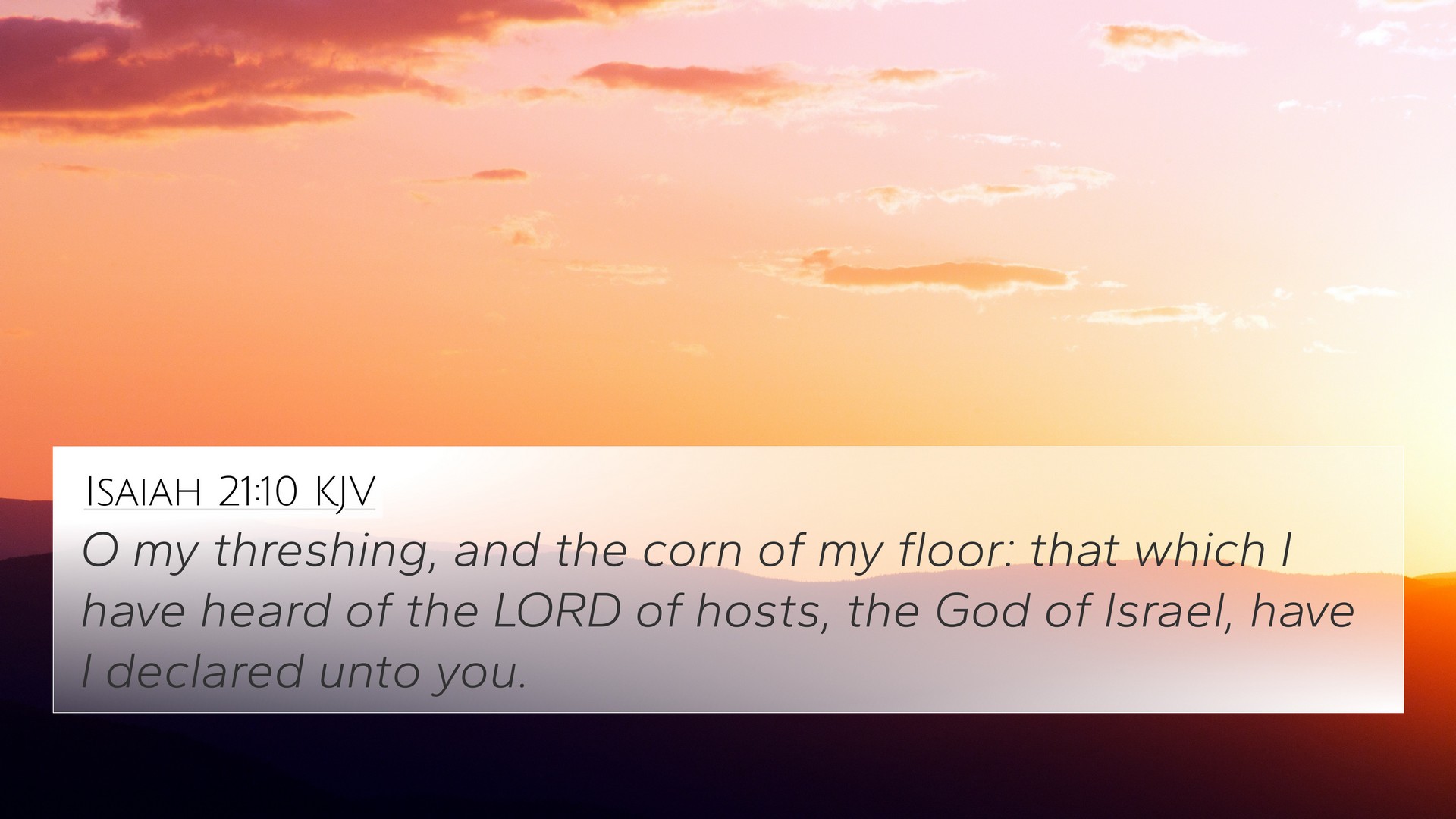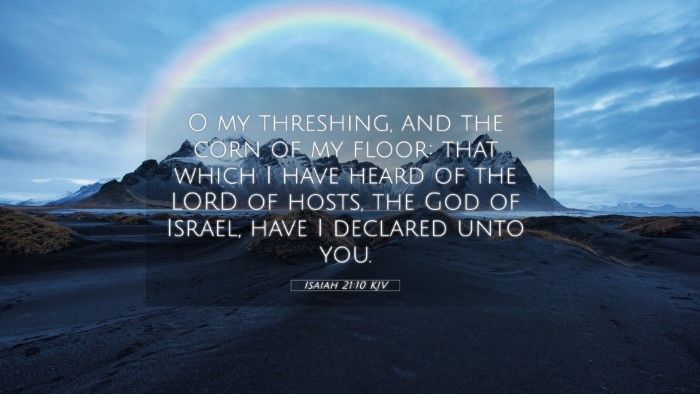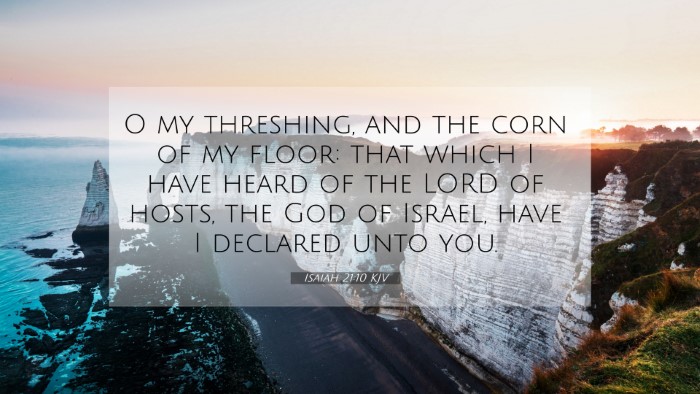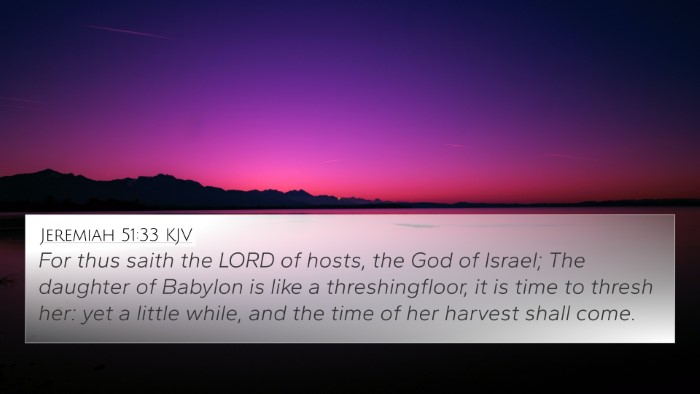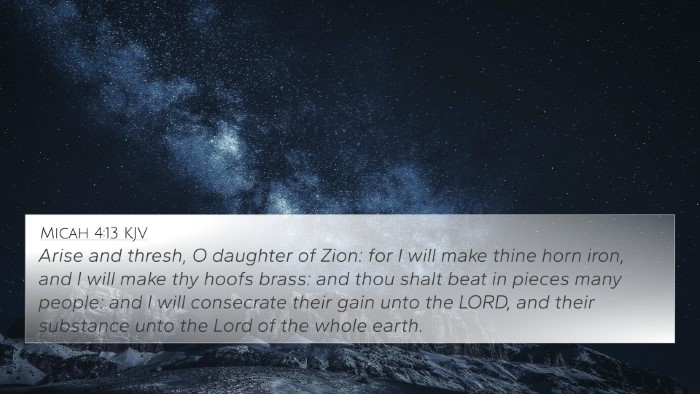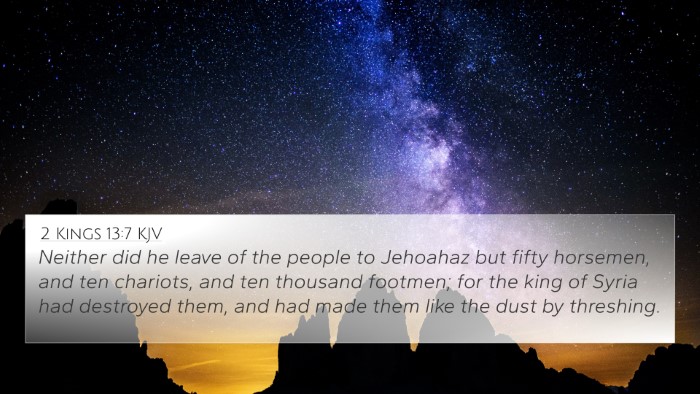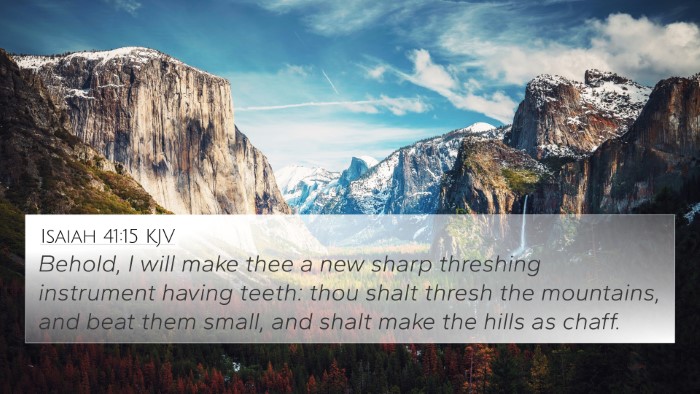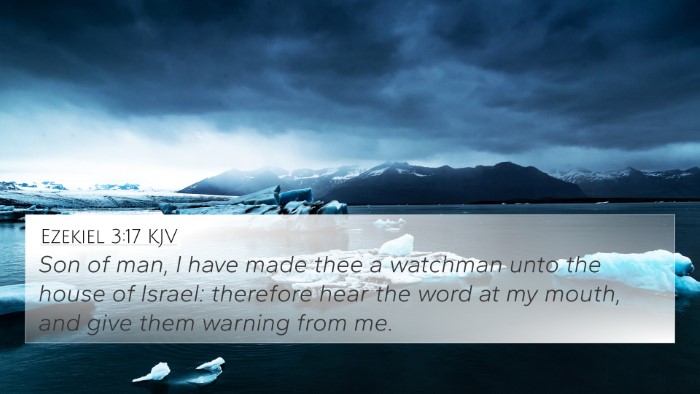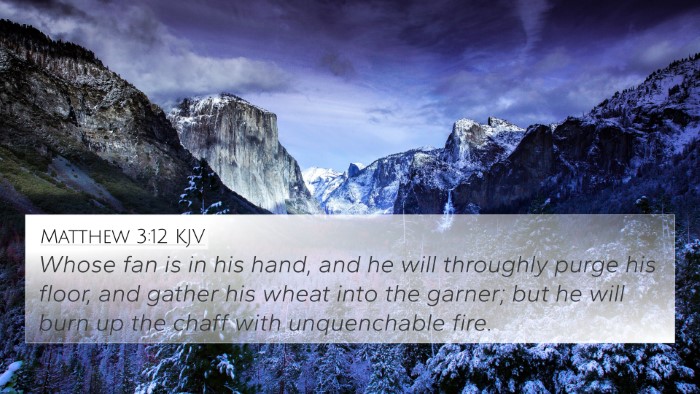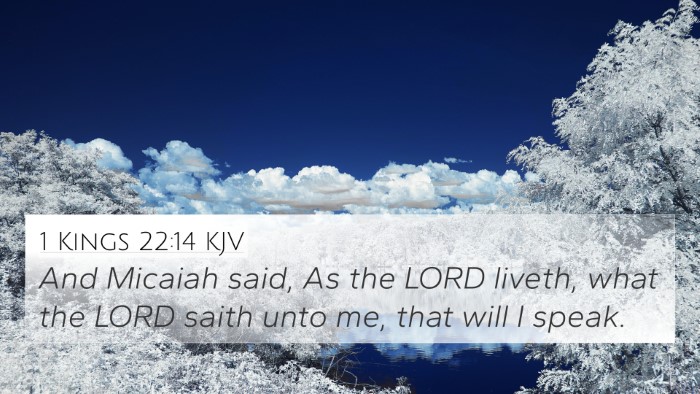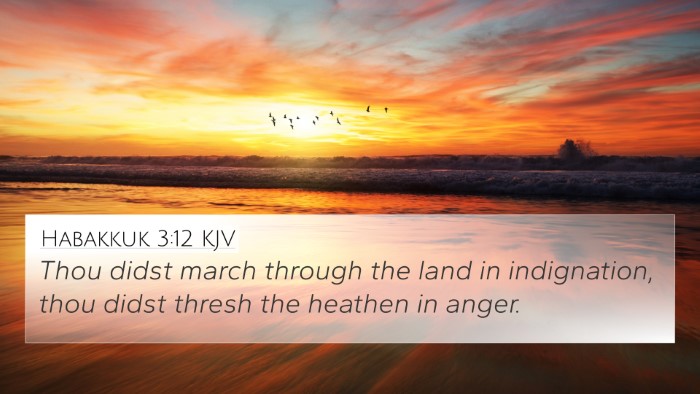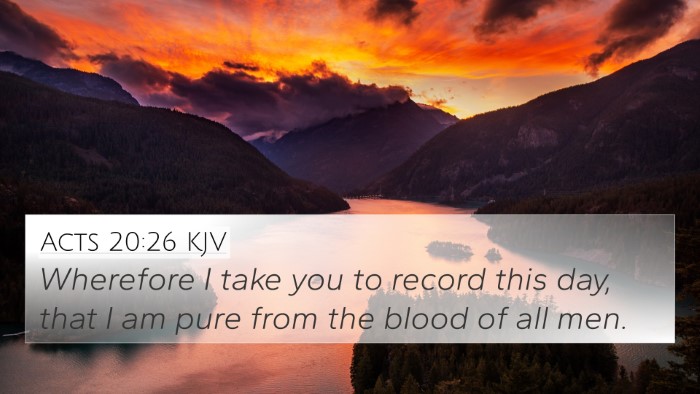Understanding Isaiah 21:10
Isaiah 21:10 presents a vivid imagery depicting the destruction and desolation that characterizes the fate of Babylon. The prophet Isaiah, in this verse, communicates a powerful message of judgment, revealing the consequences faced by those who stand opposed to God's will. In this section, we will explore its meaning through the insights provided by public domain commentaries.
Verse Analysis
The verse states: "O my threshing, and the corn of my floor: that which I have heard of the Lord of hosts, the God of Israel, have I declared unto you." This proclamation emphasizes the role of the prophet as a messenger who faithfully delivers God's warning to His people. The use of agricultural metaphors such as "threshing" and "corn" illustrates the idea of separation and purification, where the faithful are distinguished from the unfaithful.
Commentary Insights
-
Matthew Henry emphasizes the prophetic responsibility to convey the message received from God. He explains that Isaiah acts as a sentinel, announcing the fateful news of Babylon's downfall, which serves as a reminder of God's sovereignty over nations.
-
Albert Barnes highlights the importance of recognizing that the judgment on Babylon is not arbitrary; it derives from a divine decree. He argues that the imagery of "threshing" suggests both destruction and the subsequent gathering of the righteous.
-
Adam Clarke points out the agricultural symbolism inherent in the terms used. He elucidates that this language corresponds to the processes of judgment, where God separates the wheat from the chaff, illustrating the imminence of divine justice.
Cross References
To deepen the understanding of Isaiah 21:10, several Bible verses offer related insights. Here are some notable cross-references:
- Jeremiah 51:33 - "For thus says the Lord of hosts, the God of Israel: The daughter of Babylon is like a threshing floor when it is time to thresh her." This verse echoes the judgment themes found in Isaiah and reinforces the agricultural metaphor.
- Micah 4:12 - "But they do not know the thoughts of the Lord, nor do they understand His plan, that He has gathered them like sheaves to the threshing floor." This verse parallels the concepts of divine gathering and judgment.
- Revelation 14:15 - "And another angel came out of the temple, calling with a loud voice to him who sat on the cloud, 'Put in your sickle and reap, for the hour to reap has come, for the harvest of the earth is fully ripe!'" This reference connects the notion of harvesting with final judgment.
- Isaiah 28:27-29 - Discusses the methods of God's judgment upon the enemies of Israel, reinforcing the imagery of threshing as a tool of separation.
- Isaiah 63:1 - Alludes to the coming of One from Edom, bringing judgment, thus connecting to the theme of God executing His righteous indignation against nations like Babylon.
- Matthew 3:12 - "His winnowing fork is in his hand, and he will clear his threshing floor and gather his wheat into the barn, but the chaff he will burn with unquenchable fire." This New Testament verse speaks to the continuation of the threshing motif in the Ministry of Christ.
- Luke 3:17 - Similar to Matthew, this verse further elaborates the judgment narrative by emphasizing thoroughness in God’s separation of the righteous from the wicked.
Thematic Connections
The thematic connections in Isaiah 21:10 reach beyond mere destruction; they encompass broader concepts of divine justice, mercy, and the ultimate victory of God. The prophets often conveyed messages of hope and warning. In the context of a theological framework, examining this verse alongside the aforementioned references allows for a richer understanding of God's relationship with humanity.
Practical Applications
For those studying this passage, it’s essential to consider how the themes of accountability and divine sovereignty resonate today. Just as Isaiah declared God's truth, believers are called to discern and share messages of hope and judgment in their communities. Using tools for Bible cross-referencing can further enhance our studies, leading to a comprehensive biblical worldview.
Conclusion
Isaiah 21:10 serves as a poignant reminder of God's control over history and His justice towards nations and individuals alike. Recognizing the interconnectedness of scripture through cross-referencing enriches our understanding of biblical texts and themes. As we engage in comparative Bible verse analysis, we gain insights not only into God's character and intentions but also into our positioning within His overarching narrative.
Additional Resources
For those seeking to deepen their understanding of biblical themes, consider utilizing a Bible concordance or a cross-reference Bible study guide. These tools can aid significantly in identifying connections between Bible verses and contextualizing their meanings.
Reflective Questions
As we conclude, reflect on the following questions:
- How does understanding the judgment of Babylon enhance your view of God's sovereignty?
- What parallels can you draw between this verse and modern-day realities?
- In what ways can the imagery of threshing serve as a metaphor in your spiritual journey?
